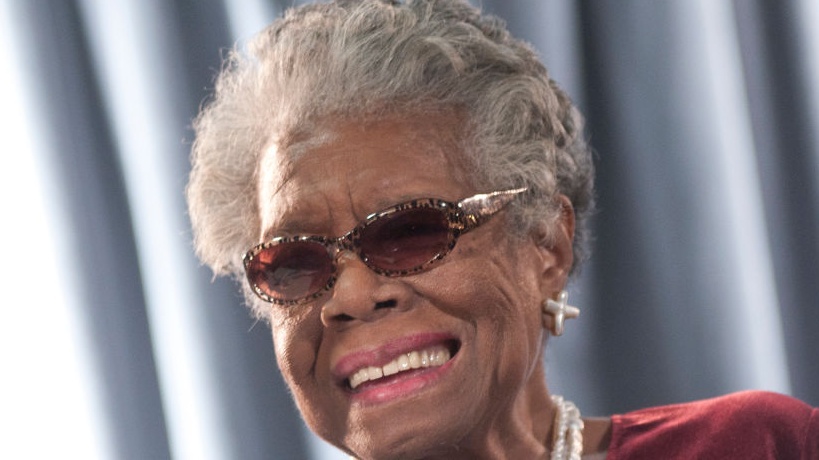A popular African proverb reads, "An elder who dies is like a library that burns."
When Maya Angelou passed in 2014, it marked a significant loss for the Black community. A woman who used the power of her words to advocate for civil rights, fight for women's rights and help readers believe in a better life, Angelou's work will be studied and beloved for generations to come.
While countless poems, several autobiographies and even more lectures will eternally honor her legacy, the following five poems were powerful and symbolic in their own regard. Either published during monumental moments in history or personal revelations from Angelou herself, these compositions are a reminder that despite setbacks, you can always prevail.
1. "Still I Rise"
"Still I Rise" was a part of Angelou's third collection of poems, And Still I Rise. Published in 1978, it quickly became one of the St. Louis native's most popular poems due its message of resilience amid the struggle to overcome racial prejudice and injustice.
Though informed by her Black womanhood, the overarching theme of oppression in "Still I Rise" would also have appeal outside of the Black community. For anyone of any minority group feeling persecuted or mistreated at any given moment, quatrains like "You may shoot me with your words/You may cut me with your eyes/You may kill me with your hatefulness/But still, like air, I’ll rise" quickly remind you to never succumb to torture, bullying, or shame.
2. "Caged Bird"
Also commonly referred to as "Know Why the Caged Bird Sings," this is arguably one of the most famous pieces of work written by the late poet. Angelou also penned an autobiography with a similar title, I Know Why The Caged Bird Sings in 1969, the first of seven autobiographies she would write in her lifetime.
In that novel, she would she would detail the ongoing struggle about being a Black creative, feeling as if her concerns were dismissed because of her skin color and the enduring trauma of slavery on Black Americans. The poet, who passed at 86 years old, felt that in some ways, she was still being impacted by enslavement, though emancipation happened decades prior to the time of her writing. Because of the many constraints imposed on Black Americans during the civil rights era, "Caged Bird" explains in-depth her concerns about Black independence.
3. "Alone"
Ironically, "Alone" emphasis the importance of togetherness by prioritizing solitude. Published in 1975 in her book Oh Pray My Wings Are Gonna Fit Me Well, the subject realizes that for her personal well-being, she cannot remain in seclusion. That being said, she would need to communicate with those around her. Another poignant theme, which is found in many of Angelou's work, is a call to action for society to work together for a greater cause as she repeatedly emphasizes: "Alone, all alone/Nobody, but nobody/Can make it out here alone."
4. "Life Doesn't Frighten Me"
"Life Doesn't Frighten Me" is a poem full of vivid imagery, from "Bad dogs barking loud" to "Dragons breathing flame." Written from the perspective of an adolescent, the composition is about overcoming fear. Angelou writes, in part, "Shadows on the wall/Noises down the hall/Life doesn't frighten me at all."
5. "On The Pulse of Morning"
"On The Pulse of Morning" holds significant historical importance: Angelou performed the piece at the inauguration of President Bill Clinton in January 1993, making her the second poet ever to read a poem at a presidential inauguration and the first Black woman to do so.
Though it was written specifically for Clinton's inauguration, the poem's themes still resonate nearly three decades later.
Angelou's death was an unfathomable loss, but scholars, poet enthusiasts and modern-day activists are forever indebted for her endless contributions.
